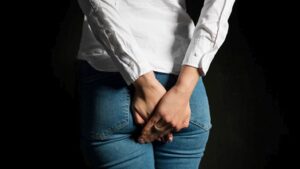How to Get Rid of Hemorrhoids?
How to Get Rid of Hemorrhoids? We don’t take count,, but this is one of the most repeated questions asked from us fordecades. How to Get Rid of Hemorrhoids? That’s why we have decided to write a separate article to clear all your queries and doubts.
Call them hemorrhoids, piles,, or just a (literal) pain in the behind. If you’re stressing every time you need to park it on the porcelain throne, you’re not alone.
By the time you turn 50, more than half of your peers will have experienced hemorrhoids at least once in their lives, proving that misery does indeed love company.
What are hemorrhoids?
Even if you’re aware that hemorrhoids may result in discomfort, pain, and even bleeding after bowel movements, you might wonder precisely what these second-worst nightmares are. Consider them similar to varicose veins but on your lower back.
Heartburn may be caused by hemorrhoids, which are enlarged and irritated blood vessels (also known as veins) in or near your anus and rectum, the chamber at the end of your large intestine.
A collection of internal hemorrhoids may develop in the rectum or anal cavity lining, and in the most severe instances, they may emerge from the body entirely. On the other hand, those that are external may feel like pimples under the surface of the skin surrounding your anus.
Even if you see blood in your stool, this does not necessarily imply that you have hemorrhoids, as previously said. There are many causes for bleeding during a bowel movement, ranging from something as simple as an anal fissure or tear to more severe illnesses such as intestinal bleeding or colon cancer.
Why do I get hemorrhoids?
Has it been brought to your attention that sitting on a cold, damp surface might induce hemorrhoids? Or is it possible that you developed them as a result of consuming too much hot food? Or that it’s a condition that only elderly people have to be concerned about? Schmaling claims that the statements are false, false, and false again.

It is true, she argues, that the specific mechanism of hemorrhoid development is unknown.”
Having said that, the professionals do have some very solid suspicions about what may be causing your most recent flare-up of symptoms. High levels of pressure in your belly and pelvis, as well as naturally occurring weakness in the bodily tissue around your veins, are the most probable reasons of bulging veins.
As a result, hemorrhoids are more common among pregnant women. These persons carry heavy items, such as weightlifters and those who push or strain to go to the bathroom frequently, typically due to constipation or diarrhea, among other things.
Additionally, it helps to explain why many individuals believe that piles are just a problem as you become older. While hemorrhoids are most frequent in those between the ages of 45 and 65, the truth is that they may affect anybody at any age. (Oh, what delight.)
Even while what you eat — or don’t eat — does not directly cause hemorrhoids, your eating habits may significantly impact the condition. For example, consuming insufficient amounts of water and fiber increases the likelihood of being constipated. With all of the additional straining, you can see how quickly everything gets flushed out.
In other circumstances, digestive problems typically characterized by diarrhea and constipation, such as irritable bowel syndrome, may also serve as an indirect trigger for a case of the piles to develop.
How to Get Rid of Hemorrhoids?
If you’ve already been diagnosed with haemorrhoids, you’re probably wondering what you can do to get rid of them as quickly and effectively as possible. The good news is that you may not have to do much of anything at all.
Generally speaking, Schmaing notes, “the majority of haemorrhoids heal on their own or react well to conservative treatment techniques.”

Smaller hemorrhoids may go away on their own in a matter of days or weeks. On the other hand, those that are bigger and more serious may take longer to calm and cause pain. If this is the case, don’t be scared to schedule an appointment with your doctor.
According to Schmaing, “While most haemorrhoids will cure on their own, it’s always a good idea to consult your primary care physician if you encounter any signs of rectal discomfort, itching, or bleeding.” The fact that they are so prevalent means that most medical practitioners are qualified to handle them and can send you to a specialist if that is what you need.
